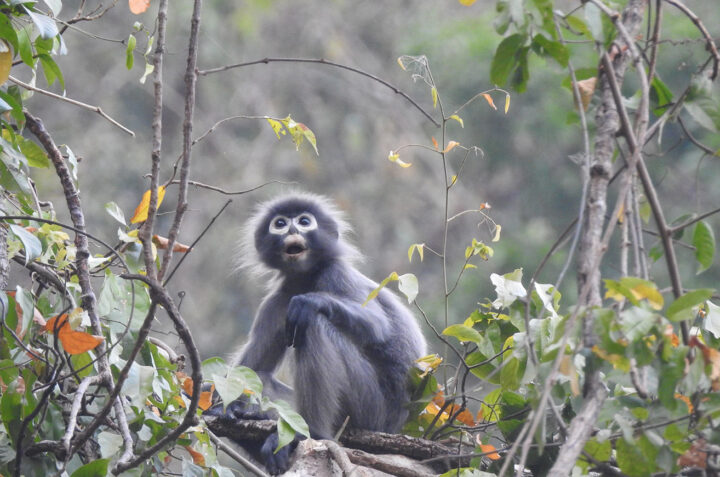International researchers in the second week of November discovered new primates Popa langur, which is critically endangered in the world. They desperately need biodiversity conservation measures to protect the primate species from extinction, U Ngwe Lwin, Programme Manager for Fauna & Flora International Myanmar said.
The leaf-eating primate species — Popa langur is discovered in Myanmar. The Popa langur differs from other known species in fur colouration, tail length and skull measurements.
“The primate species can only be found in Myanmar. The DNA tests prove that this is a new langur species. The species are found in the vicinity of Mount Popa, an extinct volcano and pilgrimage site that is home to Myanmar’s most venerated spirits and also provides a vital sanctuary for wildlife. This being so, they are named Popa langur. However, the ecosystem is falling apart, and they are being hunted and facing a declining population. They are listed as critically endangered species”, said U Ngwe Lwin. About 200-250 are left in the wild across the country. An estimated 100 of them are found in the vicinity of Mount Popa. They are on the brink of extinction, and the species need desperate conservation, FFI (Myanmar) researchers said. “The sole effort of the Forest Department will not help restore the ecosystem for wildlife animals. The community participation plays a pivotal role in the conservation of the wildlife”, U Ngwe Lwin highlighted.
The Popa langur can be found in the areas of Mont Popa, Bago mountain range, Panlaung and Padalin Cave Wildlife Sanctuary in Shan State and Yathe Pyan Cave in Kayin State. The habitats in the northeastern region are still undiscovered.
The German Primate Centre (DPZ) and FFI, in cooperation with other partners including NGOs, universities and museums, have been investigating the evolutionary history and species diversity of langurs in Myanmar and the leaf-eating new primate species named Popa langur were discovered, FFI Myanmar stated. —Peinzalote Thein Nyunt
(Translated by Ei Myat Mon)


